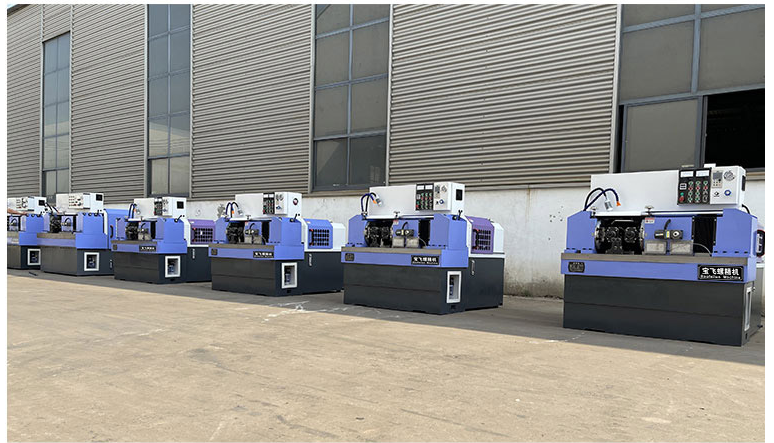
-
 Afrikaans
Afrikaans -
 Albanian
Albanian -
 Amharic
Amharic -
 Arabic
Arabic -
 Armenian
Armenian -
 Azerbaijani
Azerbaijani -
 Basque
Basque -
 Belarusian
Belarusian -
 Bengali
Bengali -
 Bosnian
Bosnian -
 Bulgarian
Bulgarian -
 Catalan
Catalan -
 Cebuano
Cebuano -
 Corsican
Corsican -
 Croatian
Croatian -
 Czech
Czech -
 Danish
Danish -
 Dutch
Dutch -
 English
English -
 Esperanto
Esperanto -
 Estonian
Estonian -
 Finnish
Finnish -
 French
French -
 Frisian
Frisian -
 Galician
Galician -
 Georgian
Georgian -
 German
German -
 Greek
Greek -
 Gujarati
Gujarati -
 Haitian Creole
Haitian Creole -
 hausa
hausa -
 hawaiian
hawaiian -
 Hebrew
Hebrew -
 Hindi
Hindi -
 Miao
Miao -
 Hungarian
Hungarian -
 Icelandic
Icelandic -
 igbo
igbo -
 Indonesian
Indonesian -
 irish
irish -
 Italian
Italian -
 Japanese
Japanese -
 Javanese
Javanese -
 Kannada
Kannada -
 kazakh
kazakh -
 Khmer
Khmer -
 Rwandese
Rwandese -
 Korean
Korean -
 Kurdish
Kurdish -
 Kyrgyz
Kyrgyz -
 Lao
Lao -
 Latin
Latin -
 Latvian
Latvian -
 Lithuanian
Lithuanian -
 Luxembourgish
Luxembourgish -
 Macedonian
Macedonian -
 Malgashi
Malgashi -
 Malay
Malay -
 Malayalam
Malayalam -
 Maltese
Maltese -
 Maori
Maori -
 Marathi
Marathi -
 Mongolian
Mongolian -
 Myanmar
Myanmar -
 Nepali
Nepali -
 Norwegian
Norwegian -
 Norwegian
Norwegian -
 Occitan
Occitan -
 Pashto
Pashto -
 Persian
Persian -
 Polish
Polish -
 Portuguese
Portuguese -
 Punjabi
Punjabi -
 Romanian
Romanian -
 Russian
Russian -
 Samoan
Samoan -
 Scottish Gaelic
Scottish Gaelic -
 Serbian
Serbian -
 Sesotho
Sesotho -
 Shona
Shona -
 Sindhi
Sindhi -
 Sinhala
Sinhala -
 Slovak
Slovak -
 Slovenian
Slovenian -
 Somali
Somali -
 Spanish
Spanish -
 Sundanese
Sundanese -
 Swahili
Swahili -
 Swedish
Swedish -
 Tagalog
Tagalog -
 Tajik
Tajik -
 Tamil
Tamil -
 Tatar
Tatar -
 Telugu
Telugu -
 Thai
Thai -
 Turkish
Turkish -
 Turkmen
Turkmen -
 Ukrainian
Ukrainian -
 Urdu
Urdu -
 Uighur
Uighur -
 Uzbek
Uzbek -
 Vietnamese
Vietnamese -
 Welsh
Welsh -
 Bantu
Bantu -
 Yiddish
Yiddish -
 Yoruba
Yoruba -
 Zulu
Zulu
CE Certification Process for Thread Rolling Tools and Their Importance in Manufacturing
Understanding CE Certification for Thread Rolling Tools
In today’s fast-paced manufacturing environment, thread rolling tools play a critical role in ensuring the precision and durability of threaded components. As the demand for high-quality, reliable products continues to rise, ensuring compliance with international standards becomes essential. One of the most recognized standards is the CE marking, which signifies that a product meets the health, safety, and environmental protection standards for products sold within the European Economic Area (EEA). In this article, we will explore the importance of CE certification for thread rolling tools and the implications for manufacturers and users alike.
What is CE Certification?
CE certification involves a systematic process whereby manufacturers must demonstrate that their products comply with the relevant European directives. For thread rolling tools, this may include directives concerning machinery safety, electromagnetic compatibility, and environmental considerations. By affixing the CE mark, manufacturers signal to consumers and regulatory bodies that their products conform to the essential requirements of these directives, thus ensuring safe and efficient operation.
The Importance of CE Certification for Thread Rolling Tools
1. Safety Assurance One of the primary purposes of CE certification is to ensure safety. Thread rolling tools can pose various risks during operation, such as mechanical hazards, noise, or vibrations. A CE mark indicates that the tool has undergone rigorous testing and meets safety standards, thereby providing assurance to users about its reliability and safety features.
2. Market Access For manufacturers, having CE certification is crucial for accessing markets within the European Union. Without this certification, products cannot be legally placed on the market, leading to significant financial losses. By obtaining CE certification, manufacturers can promote their tools not only in Europe but also in other regions that recognize CE marking as a quality standard.
3. Quality Assurance CE certification is not just a regulatory hurdle; it also reflects a commitment to quality. The certification process involves extensive documentation and testing, which encourages manufacturers to maintain high production standards. As a result, customers benefit from better-crafted products that meet strict quality assessments.
4. Global Recognition The CE marking is recognized globally, making it easier for manufacturers to expand their business beyond Europe. Many international clients and partners look for CE certification as a mark of quality assurance, facilitating smoother business dealings and fostering trust.
ce certification thread rolling tool

The Certification Process
The CE certification process for thread rolling tools typically involves several key steps
1. Identify Applicable Directives Manufacturers must determine which directives apply to their specific tools. This could include machinery directives, as well as other relevant safety and environmental standards.
2. Conduct Risk Assessment A thorough assessment to identify potential risks associated with the use of the tools must be conducted. This helps in determining necessary design and construction modifications.
3. Testing and Compliance The tools undergo testing to ensure they meet the required standards. This may involve third-party testing by notified bodies, which provide an objective assessment of compliance.
4. Documentation Manufacturers need to compile a technical file, which includes design specifications, risk assessments, and test results, demonstrating compliance with the relevant directives.
5. Affix the CE Mark Once all requirements are met, the manufacturer can legally affix the CE mark on the product, alongside issuing a Declaration of Conformity that proves adherence to relevant standards.
Conclusion
CE certification is an essential aspect of manufacturing thread rolling tools. It not only ensures that the tools are safe and high-quality but also facilitates market access and global trust. For manufacturers aiming to succeed in the competitive landscape, understanding and implementing the CE certification process is a vital step toward achieving product excellence and customer satisfaction. As industries continue to evolve, maintaining compliance with CE standards will remain a priority for ensuring the quality and safety of thread rolling tools.
